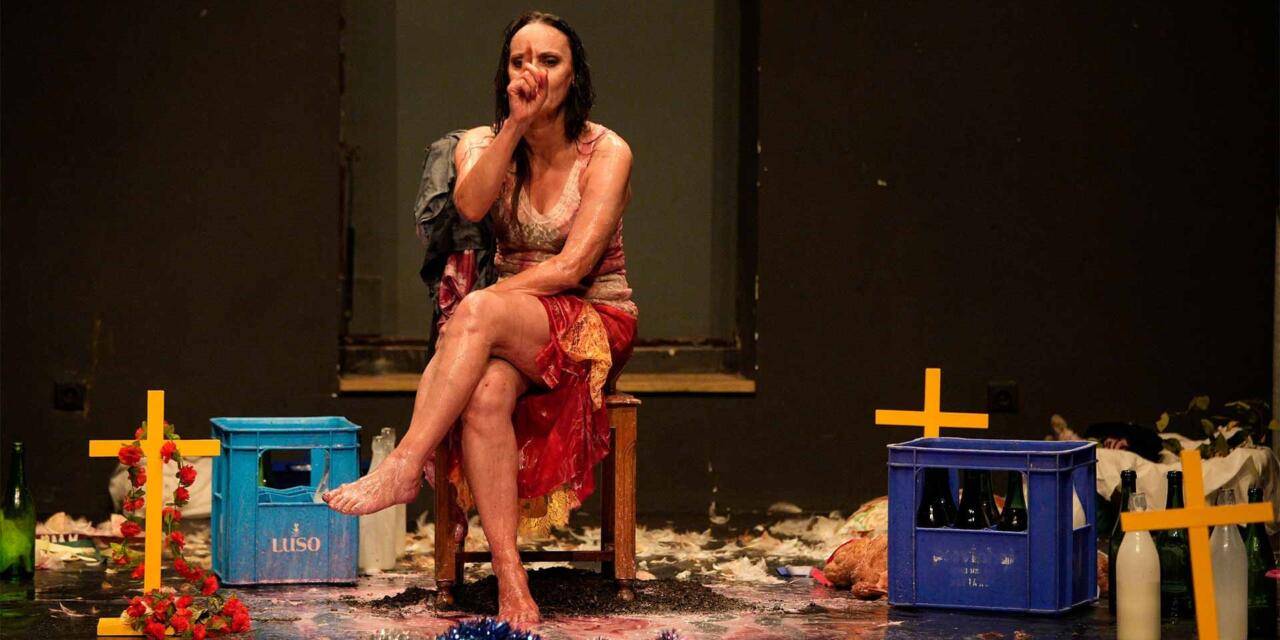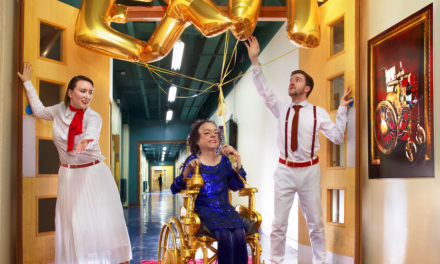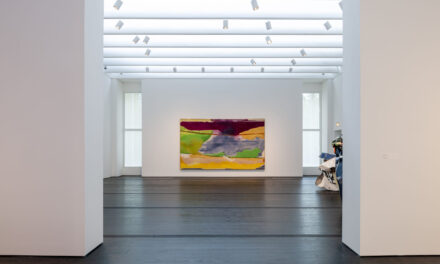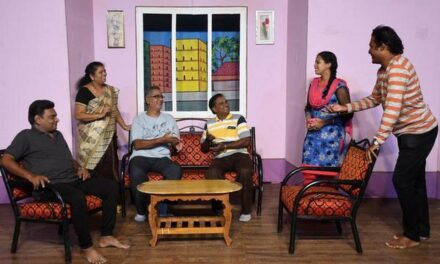There is nothing like going to a world premiere. Being one of the first to see something brand new. Especially, if the proposal belongs to an artist who has already settled her poetics but produces new interesting plays. This is the case of Vudú (3318) Blixen by Angélica Liddell, which premiered at the Salt Theater as part of the Temporada Alta Festival.
Once again, the artist has called for one of her disproportionate shows. Six hours with more than fifty people on stage. Bearing in mind that the artist is not mainstream, nor does she pretend to be, it is remarkable that she gets the necessary funding for this type of projects. Not only has she succeeded in getting the finance, but also in grabbing the attention of theater critics and journalists and theatergoers.
Assuming that, journalists and audiences who had sold out the tickets found a naïve play about the feeling of loneliness after a partner breaking up with her. A man that has abandoned her without saying her anything. The fact is that she was forsaken. However, she could not stop loving her boyfriend no matter how hard she tries. It is a useless battle.
Generally speaking, it is not so much for a such long play. Actually, there are many stories about breaking up that are much shorter. However, it is more a question of how she reveals her thoughts. In other words, it is her attractive and brave staging that appeal people.
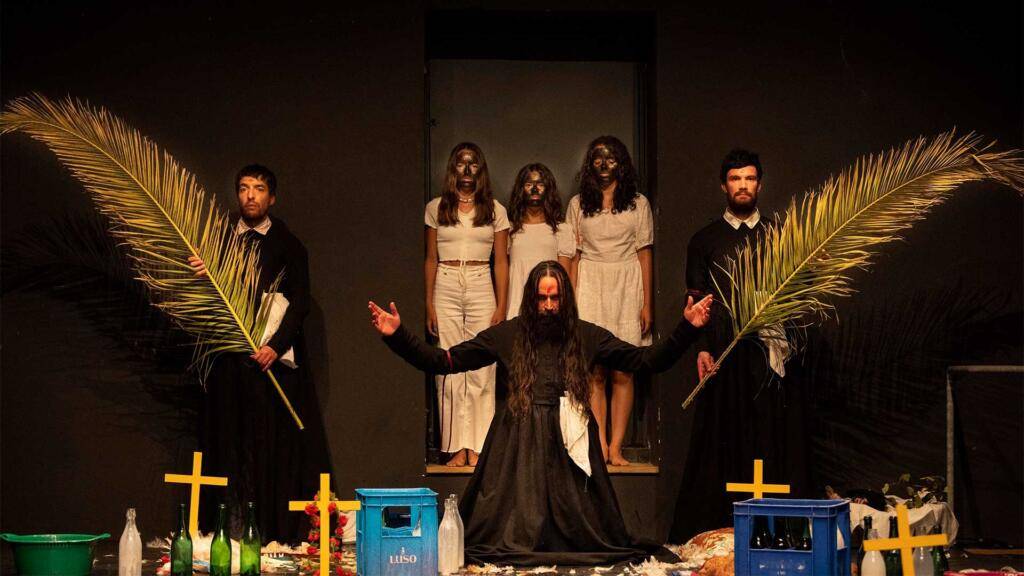
Vudu (3318) Blixen ©Luca-del-Pia.
With this in mind, Vudu (3318) Blixen is a good example of her bravery as a playwright and stage director. As an illustration of this, many scenes or tableaux vivants could be underlined. For example, in the third act. Meanwhile a voodoo short film by Maya Deren is projected repeatedly on the background, the soundtrack of the movie L’importance c’est d’aimer by Andrej Zulawski can be heard and different silent scenes take place on the stage in a mesmerizing sequence.
This third act exemplifies another key factor of the plays by Angelica Liddell. There are so many references used by her that her shows become a modern baroque fantasy. References range from global to local, for ancient to recent times. During the piece, she refers to Bach or Karen Blixen, real name of Isaak Dinesen, the writer of Out of Africa, among others. Both well known around the world,
However, other references are too Spanish for global audiences. For example, El novio de la muerte (The boyfriend’s death), the anthem of the Spanish Legion that many Spaniards know and is very popular during the dictatorship. She sings during the play, but she does not endorse this period.
On the contrary, she tries to focus the audience on the content of the song. Because it is a love song which is about a man who enrolls in the Legion because his fiancé has died, and he wants to die too. There two reasons to sing it. First, the song has contributed to Spanish people understanding of love in the last century and has developed a tragic feeling about it. Second, it mirrors her feelings about losing her own partner. It is important to point out that Angelica Liddell’s father was in the Army, and she grew up on military bases, where she probably listened the song many times and learned it.
Apart from musical references that are the most evident, Liddell also refers to books, writers, poets, philosophers, paintings and painters and performers. Therefore, it is impossible to list all of them, but it is important to reproduce what all these authors, songs, art pieces have to say about mourning process. In the end, it is as a collage that allows expressing her mourning as a way for the audience to empathize.
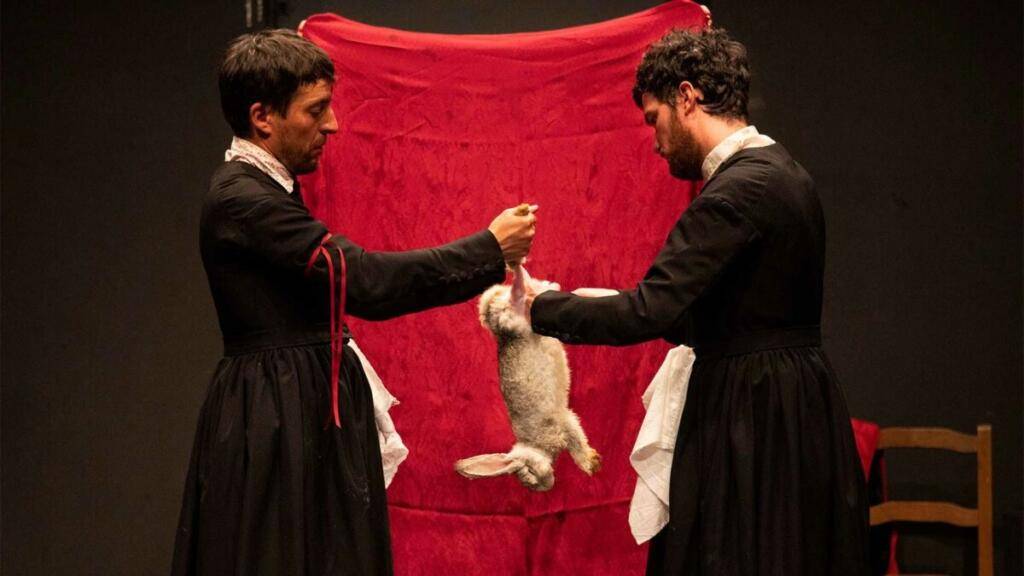
Vudu (3318) Blixen ©Luca-del-Pia.
Eventually, her purpose is to reproduce it theatrically. Her own experience of rejection and the pathway to accepting her loneliness that nothing, neither the friends nor any kind of art, can help to deal with it. Apart from writing, a poisoned chalice, a punishment from the devil. The only activity she is really good at it. Writing that it is a lonely activity, an activity for loners.
Then, the only possibility to deal with is to wait the death drinking gin and tonics with boring friends or stupid people and organize your funeral in style as Marina Abramović does in one of her popular performances. A way of living that it is usually called the joie de vivre. Is it?
Alegría de vivir is the name too of a flamenco pop song from the 80’s by Ray Heredia. A song that Angelica Liddell listens on the stage and dances at the end of the play, instead of a piece by Bach that she had announced before. Therefore, the audience, that has been in silent and moved by the play, laugh loudly and clap their hands happily because the voodoo has worked and the artist, smiling on stage, has been freed from her pain and sorrow. The long ceremony ends and life is renewed.
This post was written by the author in their personal capacity.The opinions expressed in this article are the author’s own and do not reflect the view of The Theatre Times, their staff or collaborators.
This post was written by Antonio Hernández Nieto.
The views expressed here belong to the author and do not necessarily reflect our views and opinions.

